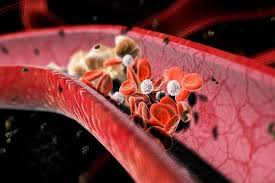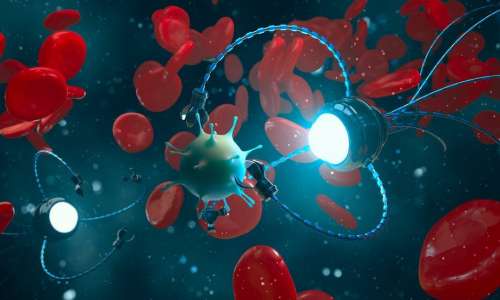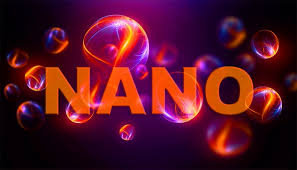nanorobot has potential for nanobots biosense and intelligent delivery of biological activators (PhD in nano-microelectronics)
Researcher and author: Dr. ( Afshin Rashid)
Note: Nanotechnology simply refers to very small particles and does not specify the material from which the particles are derived . Biological nanobots , as well as robots of normal size and the ability to work at the nanoscale, are technically Have been created. Nubic stands for Nucleic acid nanobot . Nobots are organic molecular machines at the nanoscale. The structure of DNA can provide a means of collecting two-dimensional and three-dimensional nano-mechanical devices.
DNA-based machines can be activated using small molecules, proteins, and other DNA molecules. (Nucleic acid nanobots) Cylindrical Nucleic acid nanobots (14 nm in diameter and 48 nm in length) with an interchangeable flap, capable of responding to an external stimulus and with a physical switch from a liquid cell configuration ejected into a cell Defective inheritance reacts and is able to deliver a consistent message to the nanosensor and display a biological response. The semi-liquid structure of the nano-robot is a nucleic acid solution that is completely present inside the tube and is attached to a point on the inner face of the flap. Upon activation, the flap nanoparticle mimics the nucleic acid extractor assembled in a liquid peroxide / G-quadruplex, catalyzes the enzyme DNA, and decomposes a colorimetric reaction or luminescence chemistry production. Slowly The excitation key is interacted by an external nucleic acid (target) with a complementary nucleic acid formed externally by a nano-robot (probe) and a sensitive liquid nanosensor. The combination of nanobots and the target creates a localized structural change that results in flap opening. Flap movement is performed using nanobots resonance energy transfer on a two-dimensional prototype. Which is created by various purposes including natural RNAs. The nanorobot has the potential for biosense nanobots and intelligent delivery of biological activators. Including natural RNAs. The nanorobot has the potential for biosense nanobots and intelligent delivery of biological activators. Including natural RNAs. The nanorobot has the potential for biosense nanobots and intelligent delivery of biological activators.
Nucleic acid nanobots (small medical nanobots ) are small machines in the nugget (nanoparticles) that are designed to perform specific and sometimes repetitive operations with very high precision. Using the knowledge of nanotechnology, nanobots can be designed that are placed in the human body and play the role of protector and therapist. These smart machines are able to make multiple copies of themselves and replace worn or damaged tissue. This process is called self-replication . Nucleic acid nanobots have the potential to protect the system meticulously by assembling and cloning . In fact, they are put into a process with an atomic or molecular structure to complete a cycle.But the construction of this micro-robot Nucleic acid nanobots due to the complexity of the human body so that it can move between the arteries and veins of the body and study and identify diseases
Nano-robot is a controlled robotic system at the nanoscale and molecular scale. The tiny robot incorporates features such as usability in small spaces with high flexibility, the ability to function high and consistent in different situations is an energy source for nano-robots Nucleic acid nanobots , including the kinetic energy of the fluid) of blood (light electro Magnetic is the temperature changes caused by the increase and decrease of light and the creation of suitable vibrations that can now be used in various biological environments.
Conclusion:
Nubic مخ stands for Nucleic acid nanobot . Nobots are organic molecular machines at the nanoscale. The structure of DNA can provide a means of collecting two-dimensional and three-dimensional nano-mechanical devices.
Researcher and author: Dr. ( Afshin Rashid)
PhD in Nano-Microelectronics





